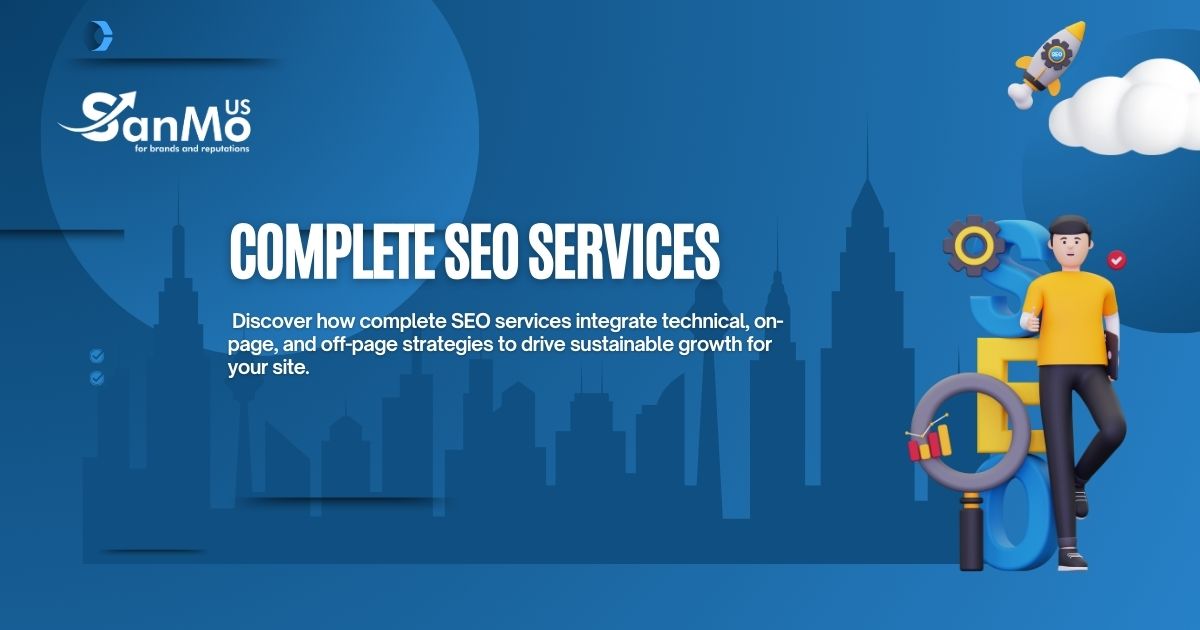In today’s digital age, a business’s reputation can be built or shattered in a matter of hours. With social media and online reviews on the rise, consumers wield more power than ever in shaping public opinion. This means that businesses need to actively protect their reputation to stay competitive. The silver lining? Good reputation management can turn challenges into opportunities and foster long-term trust with your customers. In this blog, we’ll explore the best strategies for safeguarding and enhancing your business’s reputation.
Why is reputation management crucial?
A strong reputation is one of your business’s most important assets. It directly influences brand loyalty, consumer trust, and purchasing decisions. Recent studies show that most consumers heavily rely on online reviews when making buying choices. Just one negative review can quickly erode trust, sending potential customers straight to competitors. On the flip side, a well-managed reputation boosts credibility, attracts new clientele, and can even drive revenue growth.
1. Keep an eye on your online presence
In our fast-paced world, discussions about your business can spread like wildfire. The first step in protecting your brand’s reputation is to be aware of what’s being said about it. Utilize tools like review tracking services, social media listening platforms, and Google Alerts to monitor all mentions of your brand, whether they’re positive or negative. Being informed allows you to address issues promptly, engage with feedback, and correct any misinformation before it escalates.
2. Engage proactively with your audience
Interacting with your customers is a key part of effective reputation management. This means responding promptly to reviews, comments, and questions across platforms like Google, Yelp, and social media. Thank customers for their support and recognize their positive feedback. When faced with negativity, address it professionally and offer solutions. This showcases your commitment to customer satisfaction and can transform negative experiences into positive ones. Engaging with your audience builds trust, enhances loyalty, and shows that you value their insights.
3. Encourage positive feedback
Building a strong reputation isn’t just about managing crises; it’s also about amplifying the good. Encourage satisfied customers to leave positive reviews, which not only enhances your brand’s credibility but also helps offset any negative feedback you might receive. Consider strategies like requesting reviews after successful transactions, offering incentives for feedback, or running social media campaigns that highlight customer testimonials.
4. Respond to Criticism with Professionalism
How you handle criticism can make a big difference, even if the feedback isn’t always favorable. It’s important for businesses to avoid defensive or confrontational reactions. Instead, take the time to acknowledge the concerns, apologize if applicable, and present a clear plan to address the issue. A professional and considerate response reflects your organization’s commitment to customer service and improvement. Often, customers appreciate the effort and may reconsider their negative reviews.
5. Show Transparency and Authenticity
In today’s world, where consumers value authenticity, it’s crucial for businesses to be transparent about their operations. If your organization faces challenges, it’s essential to communicate this with your clients. Own up to mistakes and share how you’re working to fix them. Transparency fosters credibility and trust, helping build long-term loyalty with your audience while minimizing the potential for backlash.
6. Build a Strong Social Media Presence
Social media is a powerful tool for protecting and managing your reputation. It allows you to connect directly with your audience and shape the narrative about your brand. By consistently sharing updates, showcasing customer success stories, and engaging with followers, you can create a positive and lasting reputation for your business. Moreover, social media provides an excellent platform for crisis management, giving you the opportunity to address negative situations openly and swiftly.
7. Be Prepared for Crisis Management
Crises can happen to any business, but being prepared can make all the difference. Develop a crisis management plan that outlines specific steps for dealing with unexpected challenges or negative publicity. Assign a team responsible for handling communications during crises and ensure they have the resources they need to respond quickly and effectively. With a solid plan, you can protect your reputation, rebuild trust, and minimize damage when issues arise.
Long-Term Benefits of Reputation Management
Investing in reputation management brings several benefits that pay off in the long run. A strong, positive reputation not only boosts your market position but also attracts new clients and builds customer loyalty. It acts as a safety net during tough times, allowing for quicker recovery from setbacks. In today’s competitive landscape, businesses that have cultivated solid reputations are more inclined to thrive, enjoying increased trust, credibility, and profitability.
In the age of digital interaction, reputation management isn’t just important; it’s crucial for business success. Relying solely on high-quality products or services isn’t enough anymore; brands must actively protect and nurture their public image. By engaging with customers, keeping an eye on your online presence, and thoughtfully addressing feedback, you can redefine your brand’s reputation and set your business up for lasting success. A well-managed reputation becomes a powerful asset, not only protecting your business but also paving the way for growth.








